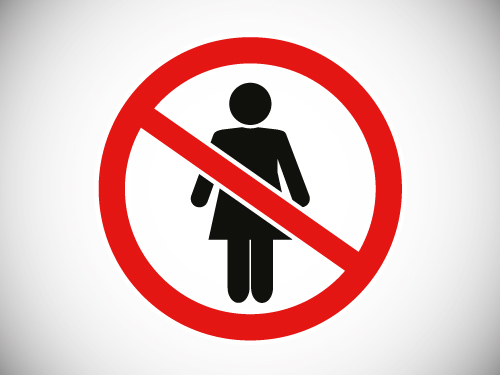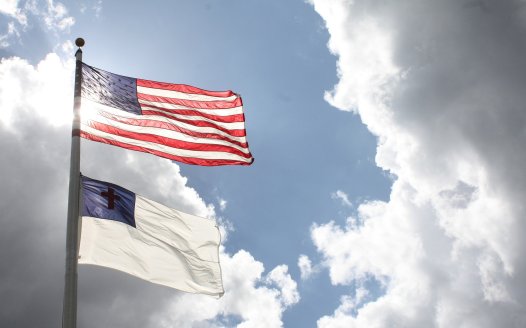Sexist state church should be disestablished
Posted: Wed, 2nd Aug 2023 by Megan Manson
Imagine if a colleague of yours, due to his deeply held religious beliefs, refused to follow his manager's instructions because that manager is a woman. What would happen?
In almost all cases this would be unacceptable; places of work which tolerated it would probably find themselves on the wrong side of the law. Although both sex and religion or belief are protected characteristics under the Equality Act 2010, the law is clear that individuals cannot discriminate against their colleagues just because their religion says they should.
But there still exist niches where such obvious sexism is permitted – and one of those is the established church.
It is quite incredible that in the 21st century, 500 Church of England churches ban female priests. This is thanks partly to religious exemptions in the Equality Act, and partly to the 2014 House of Bishops' Declaration on the Ministry of Bishops and Priests issued when the Church finally decided to let women be bishops. The declaration includes the principle that the Church "remains committed to enabling" those who are "unable to receive the ministry of women bishops or priests" to "flourish".
In other words, men who don't want to suffer the indignity of accepting a woman's authority don't have to and will be continued to be welcomed by the Church with open arms.
Increasing numbers of CofE members find the Church's stance on female clergy abhorrent. The church of St Fimbarrus in the Cornish town of Fowey has recently u-turned on its prohibition of female vicars following a backlash from parishioners. Ironically, Fowey was once home to The Vicar of Dibley star Dawn French.
Growing numbers of parliamentarians are also challenging the Church's sexism. Last month Labour MP Diana Johnson challenged the Church's representative in the House of Commons, Andrew Selous, on this issue.
Selous' response? "The Church of England is fully committed to all orders of ministry being open equally to all without reference to gender. The Church is also committed to ensuring that those who cannot in good conscience receive the ministry of women priests or bishops are able to flourish".
Two mutually exclusive commitments, if ever there were. The Church will not be equally open to clergy of both sexes as long as it allows parishes to reject one of those sexes.
Some may argue that, unlike the Church's homophobic approach to gay marriage, this is a strictly internal affair which only affects female CofE clergy, not the wider public. But the established Church's commitment to helping misogynists within their ranks "flourish" has broader implications. It tacitly implies that there's something so subversive about women with authority that it's reasonable for men to reject them.
While women's rights in the UK have inarguably progressed, women are still underrepresented in positions of power and overrepresented as victims of domestic violence. The UK's gender pay gap stands at nearly 15%. A meagre nine percent of FTSE 100 companies and just under five percent of FTSE 250 companies had female CEOs in 2022. Only 35% of members of the House of Commons and 29% of the Lords are female. According to Refuge, one in four women in England and Wales will experience domestic abuse in her lifetime, two women a week are killed by a current or former partner, and domestic abuse drives three women a week to suicide. Ninety-three percent of defendants in domestic abuse cases are male while 84% of victims are female.
Religious promotion of female subordination upholds and feeds narratives fuelling discrimination and violence against women. Religiously sanctioned notions that women exist to serve men translate into decision making which limits women's opportunities, and into relationships which are coercive, controlling and abusive.
With church attendance rapidly dwindling, supporters of establishment are running out of justifications for the extraordinary privileges granted to the CofE. One often repeated justification is that the Church offers moral leadership with some sort of 'ethical insight' denied to the secular arms of the state.
But a church which prioritises keeping conservative male clergy appeased to the detriment of women who just want equal treatment doesn't seem particularly moral. Rather, it seems to be putting its own interests above those of the nation it claims to serve.
Just as the Church cannot credibly claim commitment to equality while allowing parishes to discriminate against female clergy, it cannot serve the needs of the nation while clinging to outdated dogma which holds back women's rights.
Parliamentarians know this, and they're weaponising the Church's established status against the Church itself. On the issue of female clergy, father of the house Peter Bottomly MP delivered an ultimatum: "The Church Commissioners should understand that either the Church of England gets rid of what ought to have been temporary exemptions from the Equality Act 2010 or Parliament will do that for it".
Perhaps parliamentarians ought to go one further and begin the disestablishment process themselves. After all, do we really want a religion with such an appalling record of homophobia and child abuse, as well as misogyny, as part of the architecture of our constitution?
The dignified and principled thing would be for the Church to jump before it is pushed: it should initiate disestablishment. That would give it the theological independence it craves while clearing our 21st democracy of the aberration of a state religion.
Now that would be serving the needs of the nation.
Image: gazlast92, Shutterstock
Separate Church and State
We want to separate church and state so no religion has undue influence over our politics and society. Join our campaign to disestablish the Church of England.







